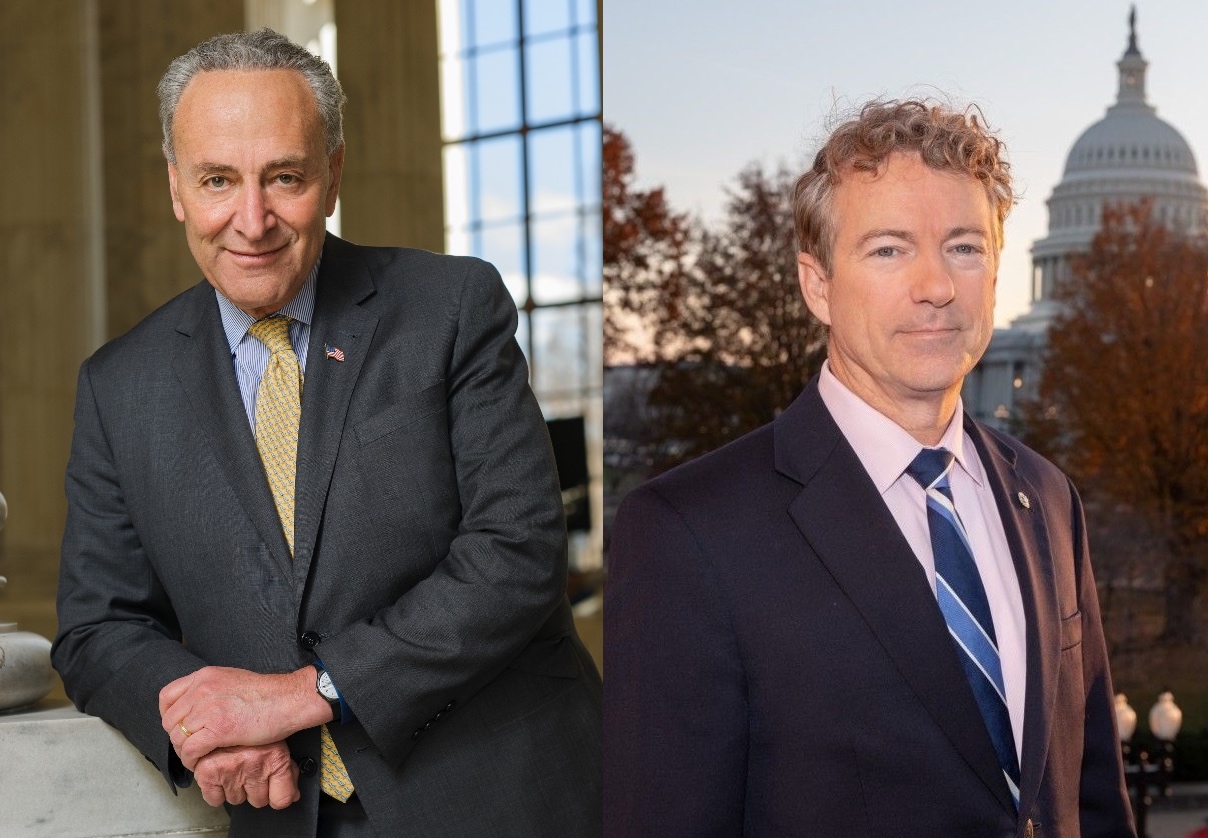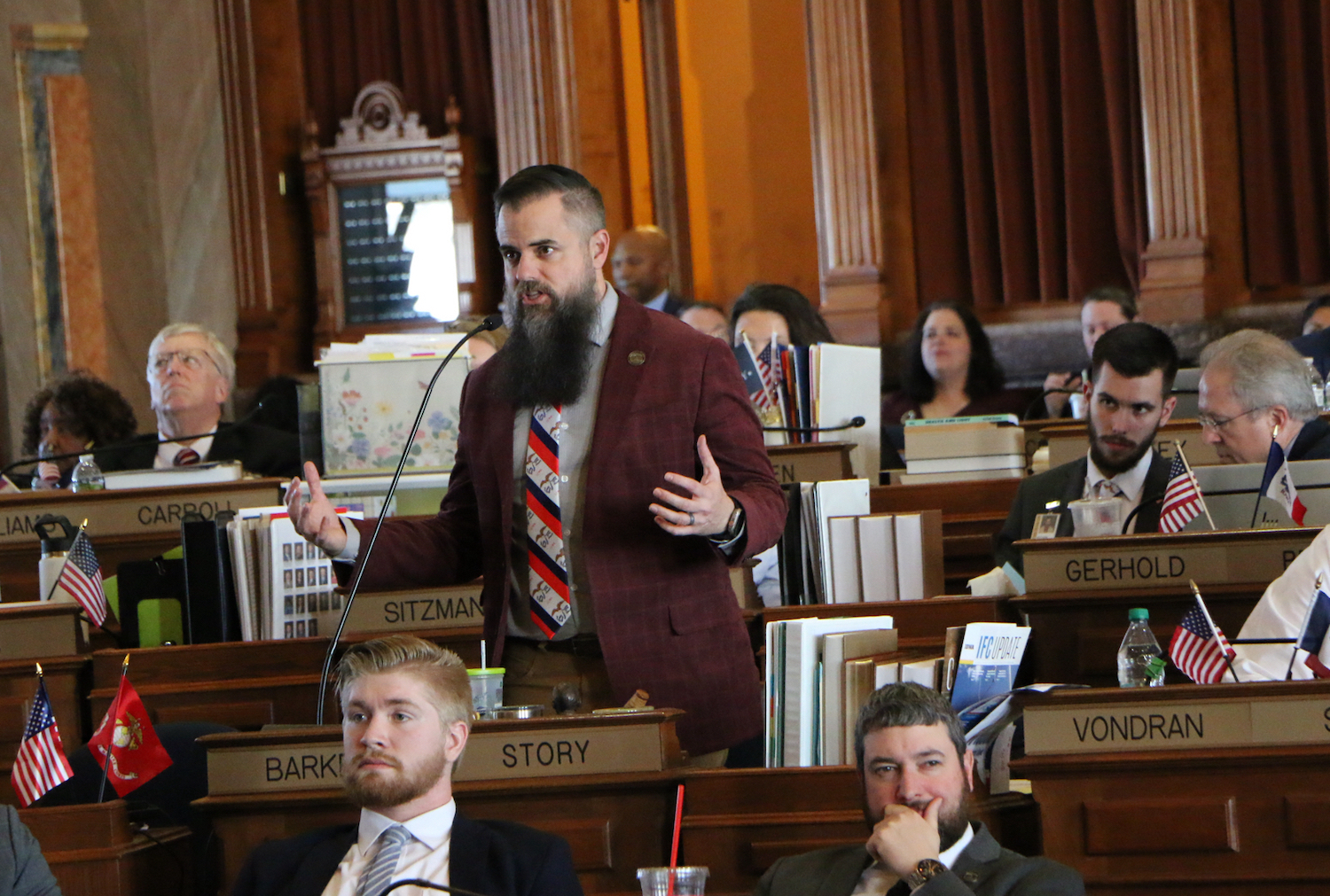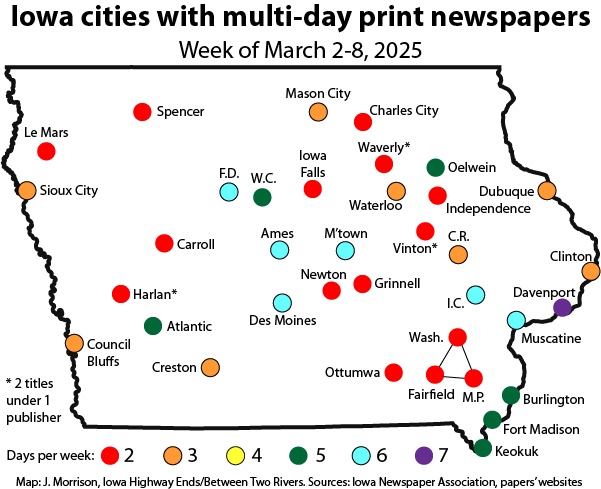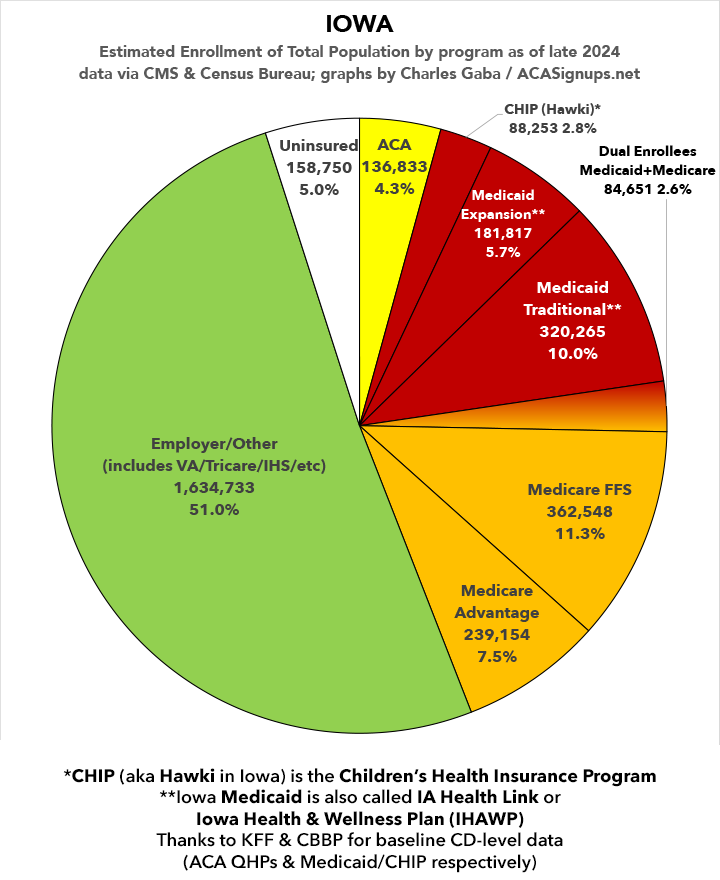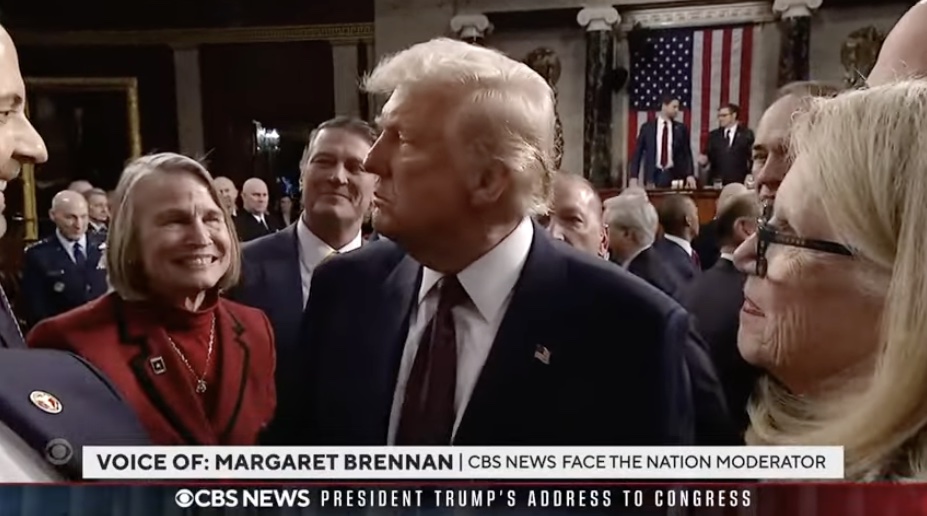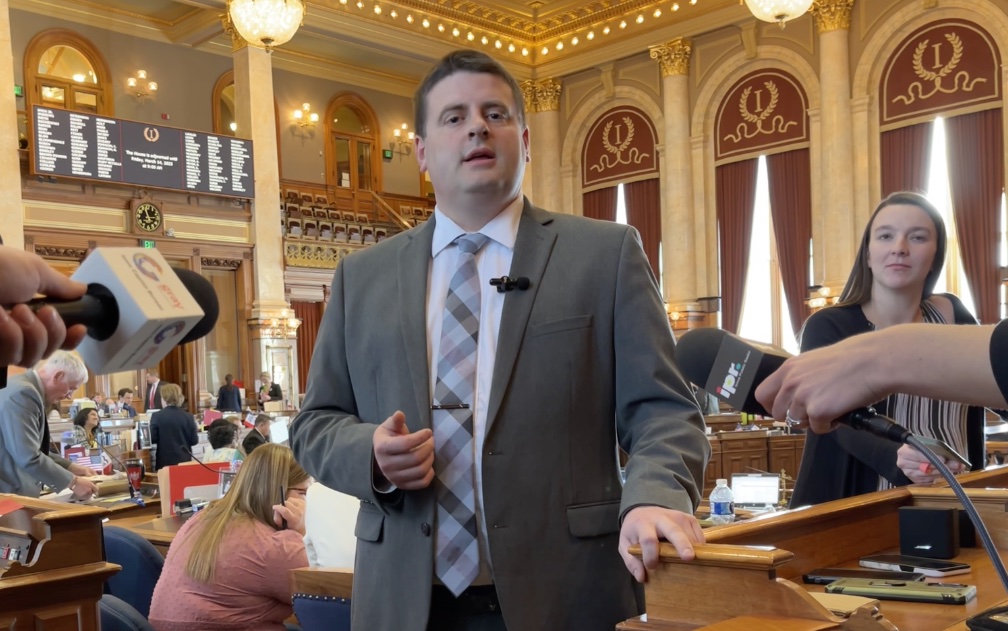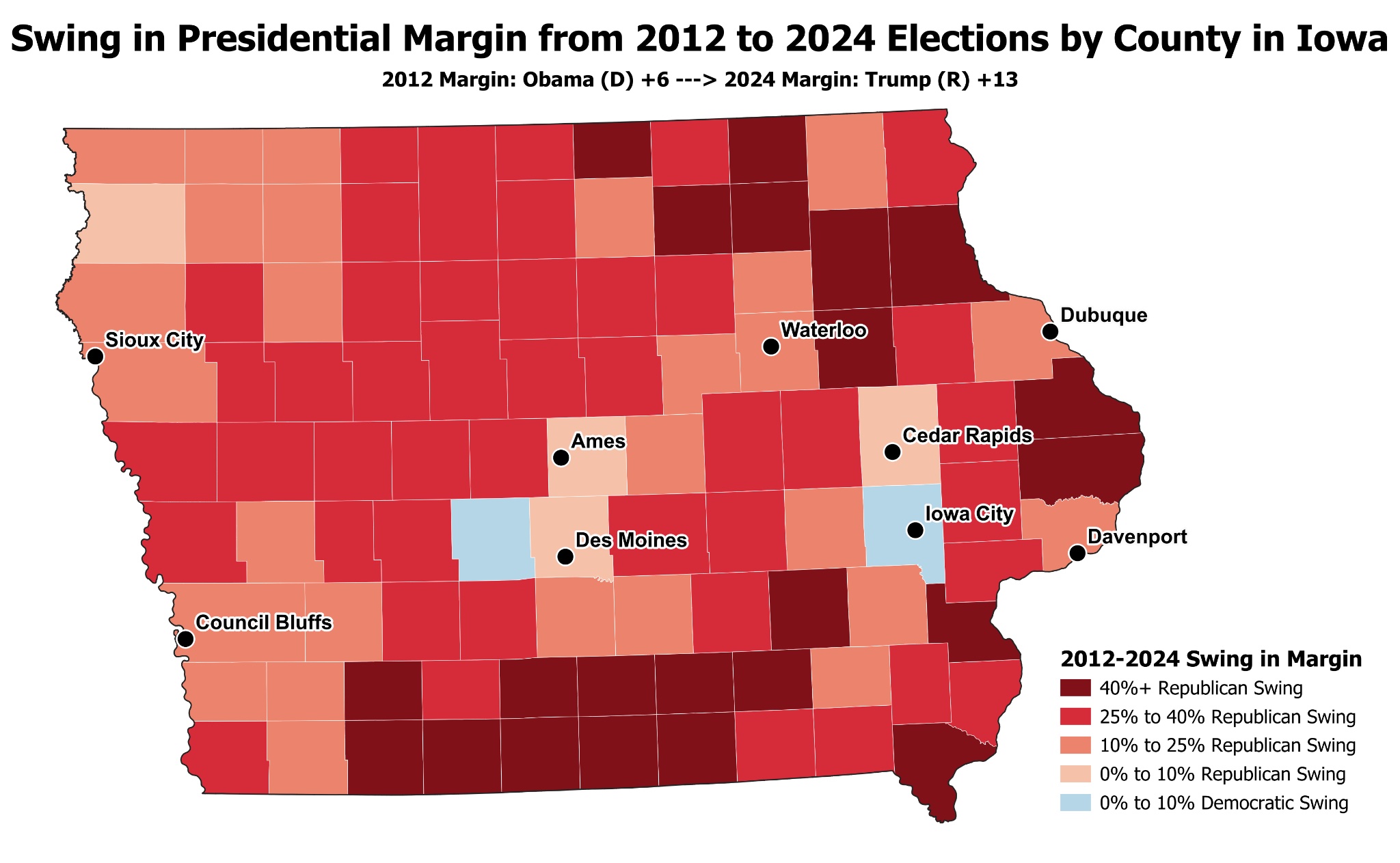Randy Evans is executive director of the Iowa Freedom of Information Council, a nonpartisan, nonprofit organization that promotes openness and transparency in Iowa’s state and local governments. He can be reached at DMRevans2810@gmail.com.
As President Donald Trump, red-state governors, and legislators elevate the stress and anxiety in higher education by seeking to change how U.S. colleges and universities operate and what they teach, the contrast between how an Ivy League school and an Iowa university responded shows the courage gap among college leaders.
Columbia University, the 270-year-old private, nonprofit institution in New York City, garnered intense governmental attention and public criticism last week.
The Trump administration cancelled $400 million in federal grants for medical and scientific research because of what the president thought was the school’s inadequate response to pro-Palestinian protests on campus growing out of Israel’s war in Gaza. The president demanded the school make a series of substantive changes as preconditions for the feds’ restoration of the grants—including banning protesters from wearing masks, thereby making it easier to identify them.
Robert Reich, a University of California professor of public policy and former member of the Clinton cabinet, wrote last week about the Trump administration’s actions: “Don’t fool yourself into thinking this is just about Trump wanting to protect Jewish students from expressions of antisemitism. It’s about the Trump regime wanting to impose all sorts of values on American higher education. It’s all about intimidation.”
While the Ivy League school withered in the spotlight and gave in to the pressure, Drake University, the largest private school in Iowa, stood firm against the tide of federal and state mandates to end diversity, equity and inclusion initiatives in a way few institutions have in recent weeks.
Marty Martin has led Drake as its president for the past ten years. On March 3, he offered a blunt defense to Drake’s faculty, staff and students of what opponents to diversity, equality, and inclusiveness label simply as DEI.
In an email titled “A Welcoming Place for All,” Martin wrote:
A great strength of Drake University is the ever-increasing diversity of the individuals who make up this wonderful place. That diversity is essential to our mission promise to prepare our students for meaningful personal lives, professional accomplishment, and responsible global citizenship.
It creates opportunities for life-changing relationships. It makes our campus more interesting and vibrant. It broadens perspectives and enriches the learning experience. It ultimately makes our University stronger and more resilient.”
Martin continued: “When we open ourselves up to the wide array of individuals and communities around us, our lives become more grounded, joyful, and fulfilling. We learn that our differences are not weaknesses, they are strengths. We discover that exploring those differences with open minds and hearts, with empathy and love, is one of the most meaningful experiences we can have in life.”
He then directed his attention to Iowa state government:
On Friday [February 28], Governor Reynolds signed a bill ending eighteen years of civil rights protection for transgender and nonbinary Iowans. This action is one among many current state and federal efforts that seek to turn our differences into division. Instead of working to find a shared path grounded in respect for the basic human dignity possessed by every person, too many public officials are seeking to marginalize and isolate our colleagues, neighbors, friends, and loved ones.
This is a moral failure against which we stand in opposition. It is our duty to respect, support, and affirm anyone in our community targeted by these actions.
Martin concluded, “The road ahead is going to present many challenges to the values that define this institution. … My hope is that we travel this road together grounded in a shared commitment to be there for each other every step of the way. You have my unwavering commitment to remain steadfast in fostering a welcoming, inclusive, and safe community for all.”
Martin’s message was not written in a vacuum. And effective and courageous leadership does not occur in a vacuum, either.
At a time when academic freedom and First Amendment rights get pushback from federal and state government officials, Marty Martin elevated Drake University above a concerning number of other colleges and universities that have bowed to outside political pressure and legalized extortion.
Federal research grants are not some form of reward or incentive available only to government’s “friends.” Nor should these grants—and the promise they hold for healthier lives—become a tool for intimidation.
Government never should have the power to condition benefits, funding or support on a waiver of constitutional rights or civil liberties.
Presumably, the medical research grants the Trump administration is cutting originated because government saw important societal benefits from the breakthroughs these institutions’ scientists have achieved—breakthroughs that have improved survival rates and new treatments for breast cancer, for heart disease, for leukemia, diabetes, and other health disorders.
Martin’s letter also comes at a time when a bill moving through the Iowa legislature would withhold Iowa Tuition Grants from private colleges and universities in the state if a school refuses to end its diversity, equity and inclusion initiatives. (Iowa House members approved House File 856 last week; the bill has been assigned to a subcommittee in the Senate.)
The tuition grant program was created in 1972 and has made higher education more affordable for qualifying students who choose to attend an Iowa private, not-for-profit college or university. The state will spend about $50 million this year on these need-based scholarships.
One footnote of irony: That the legislature is considering conditioning college tuition support on how private colleges run their internal operations—their diversity and equality initiatives—stands in sharp contrast with the hands-off position the state takes with private K-12 schools that receive taxpayer funds through Education Savings Accounts. These voucher accounts provide $7,800 in tax money for each student to assist with their private school tuition, costing the state hundreds of millions of dollars a year.
The question now is whether state and federal government officials take a similar hands-off attitude toward the pledge by Marty Martin and Drake University to keep its campus welcoming, nurturing and supportive of all students, all faculty and all staff.
Continue Reading...

